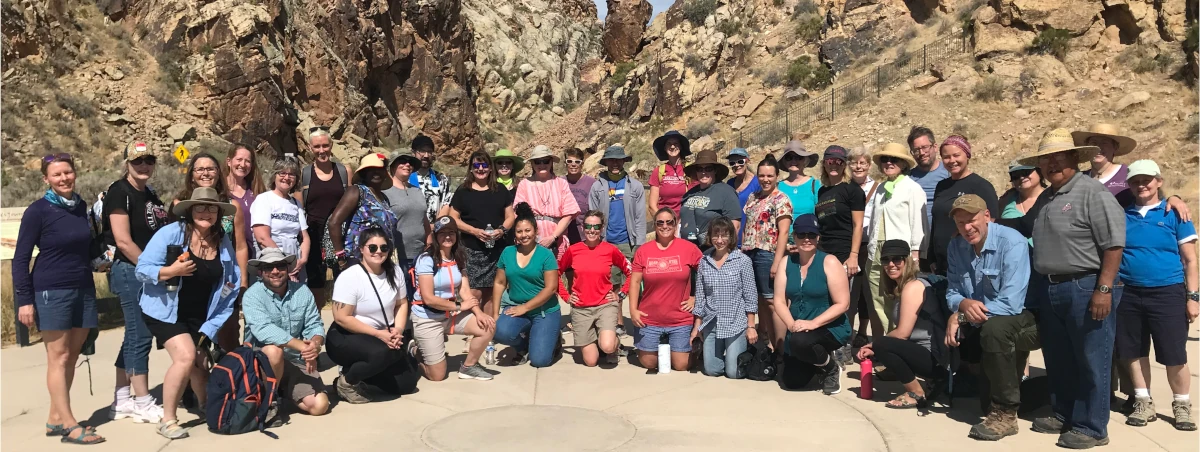
Voices of the Ancients: Archaeology and Oral Tradition in the American West
NEH Landmarks of American History and Culture
A remarkable experience awaits you on the campus of Southern Utah University. Escape into the scenic backdrop of iconic red rock while attending an unforgettable workshop. Location is everything and SUU’s is hard to beat. The 130-acre campus is in the heart of Cedar City, which sits about halfway between Salt Lake City and Las Vegas on I-15 and is within a 5-hour drive of over 20 national parks and monuments in Utah, Arizona, and Nevada.
The Voices of the Ancients Institute will expand the length and breadth of American history by employing archaeological inquiry and content, visiting culturally significant places, and hearing the history of those places told by diverse voices. The narrative of American history stretches back thousands of years before Europeans entered the Western Hemisphere and includes many different people and cultures. While the history of any pre-colonial culture of North America could be used to expand American history, the Fremont people who thrived in what is now the state of Utah for more than 1200 years provide an excellent example of efficient adaptation to a desert environment through horticulture and foraging, the development of complex communities, and cultural communication through magnificent rock art. The landmarks of their culture are readily accessible and provide a glimpse into culturally rich lives lived long ago. Most importantly, the descendants of the Fremont people (Paiute, Shoshone, Ute, Goshute, and Navajo) are still part of the rich tapestry of contemporary American culture and can provide life-changing perspectives about the land and people that have and do live in the American West.
Project Directors
The Voices of the Ancients Institute has been made possible in part by a major grant from the National Endowment for the Humanities: Democracy demands wisdom. Any views, findings, conclusions, or recommendations expressed in this website and workshop, do not necessarily represent those of the National Endowment for the Humanities.



